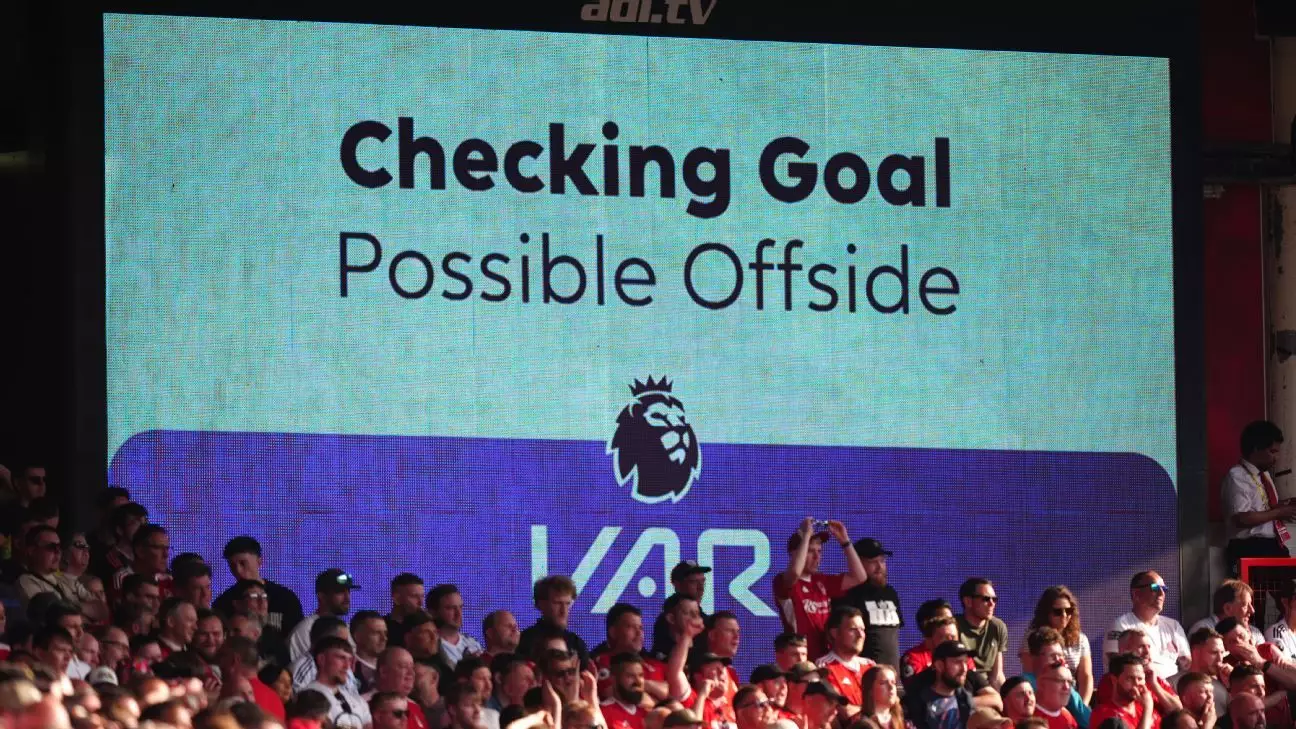Wolverhampton Wanderers recently made headlines by submitting a motion to abolish the use of VAR in the Premier League. This bold move has sparked a contentious debate among football fans and professionals alike, with a vote scheduled to take place at the upcoming meeting of the 20 Premier League clubs. The motion, if passed, would see the immediate removal of the video assistant referee from the English top flight.
In their official statement, Wolves outlined a number of key complaints that have led them to propose the elimination of VAR. These grievances include the impact on goal celebrations, frustration and confusion caused by lengthy VAR checks, and an overall decline in the game’s spontaneity and integrity. Wolves argue that the pursuit of a marginal increase in accuracy has come at a steep cost, undermining the essence of football as a sport.
The motion put forth by Wolverhampton Wanderers sheds light on the various negative consequences of VAR that have permeated the Premier League in recent years. From disruptions to the fast-paced nature of the game to a loss of trust in officiating standards, VAR has proven to be a divisive addition to English football. Furthermore, the erosion of on-field officials’ authority and the emergence of nonsensical corruption allegations have further fueled the backlash against VAR.
Despite Wolves’ impassioned plea to eliminate VAR, the Premier League has expressed its unwavering support for the technology. The league contends that VAR is an evolving aspect of the game that can yield significant benefits for both players and fans. While acknowledging the concerns raised by clubs like Wolves, the Premier League remains committed to refining and improving VAR to enhance the overall footballing experience.
One of the central arguments in the debate over VAR is its effect on the accuracy of key match decisions. Proponents of VAR point to a substantial increase in decision accuracy, from 82% before VAR to 96% this season. Despite this improvement, the persistent controversies and disruptions caused by VAR checks have raised doubts about its long-term viability in the Premier League.
The Premier League is not the only football league grappling with the issue of VAR. Other leagues, such as Ligue 1 in France and Sweden’s top-tier division, have faced similar debates over the technology’s efficacy and impact. While some leagues have opted to embrace VAR, others, like Brest in Ligue 1 and Sweden’s fan-owned clubs, have vocally opposed its introduction, underscoring the global discord surrounding VAR.
Wolverhampton Wanderers’ motion to scrap VAR in the Premier League has ignited a contentious dialogue about the future of officiating in English football. As the debate intensifies and the vote approaches, the footballing community must grapple with the complex implications of VAR on the game’s essence and integrity. Whether VAR remains a fixture in the Premier League or undergoes significant reforms, the discourse surrounding its implementation is emblematic of the broader tensions between tradition and technological advancement in modern football.

Leave a Reply